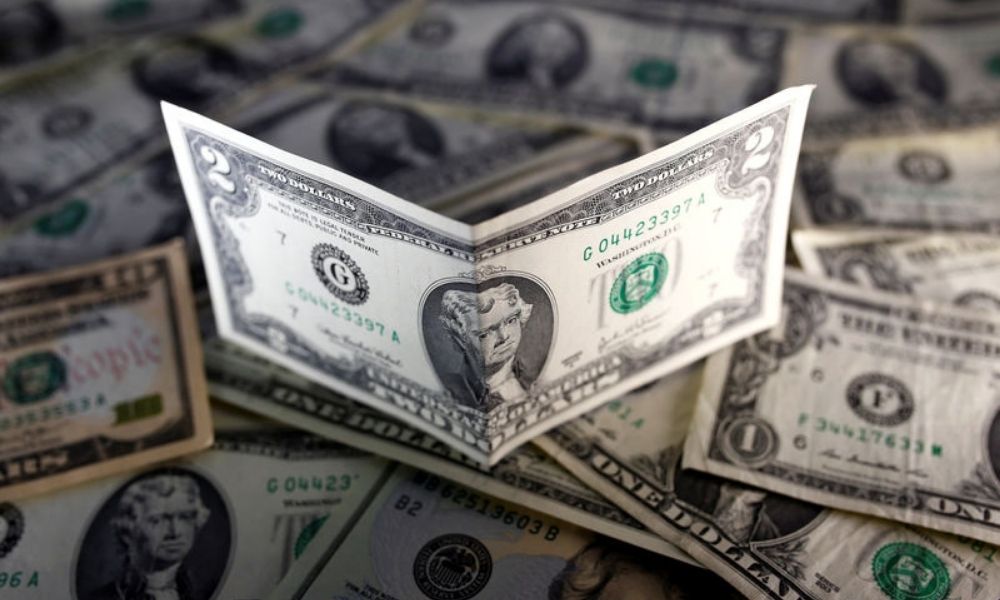
Investing.com – The dollar was down on Thursday morning in Asia. Safe-haven currencies pressed paused after the previous session’s big gains. However, concerns are growing that tighter monetary policies from the U.S. Federal Reserve and other global central banks could impact economic growth.
The U.S. Dollar Index that tracks the greenback against a basket of other currencies inched down 0.03% to 103.65 by 11:42 PM ET (3:42 AM GMT). The small loss comes after a 0.55% jump during the previous session that ended the U.S. currency’s three-day losing streak.
The USD/JPY pair was up 0.43% to 128.76 after a 0.86% tumble on Wednesday. Japanese trade data for April 2022, released earlier in the day, showed that exports rose 12.5% year-on-year, imports rose 28.2% year-on-year, and the trade balance contracted to -JPY839.2 billion (-$6.51 billion).
The Swiss franc, a fellow safe-haven asset, continued to strengthen. The dollar lost a further 0.13% to 0.9869 franc after a 0.6% slide.
The AUD/USD pair rose 0.73% to 0.7004 and the NZD/USD pair rose 0.56% to 0.6330.
The USD/CNY pair inched up 0.08% to 6.7600 and the GBP/USD pair was up 0.32% to 1.2378.
The benchmark 10-year U.S. Treasury yield steadied around 2.89% in Tokyo trading, falling from a high of 3.015% hit during the prior session.
However, investor sentiment remains fragile despite safe-haven assets cooling a recent rally. Asian stocks and U.S. futures were down, tracking a 4% drop for the S&P 500 and a 5% plunge for the Nasdaq the day before.
Poor U.S. housing data on Wednesday added to economic slowdown concerns, with building permits at 1.819 million but contracting 3.2% month-on-month in April 2022. Housing starts were at 1.724 million but contracted 0.2% month-on-month.
Fed Chairman Jerome Powell adopted his most hawkish tone to date earlier in the week, saying the U.S. central bank would hike interest rates as high as needed to stem a surge in inflation that threatened the foundation of the economy.
Powell's stance "makes it hard to achieve a 'soft landing' for the U.S. economy given the long lags between changes in monetary policy and changes in inflation," Commonwealth Bank of Australia (OTC:CMWAY) currency strategist Joseph Capurso said in a note.
"The darkening outlook for the U.S. economy supports the dollar and safe-haven currencies."
Meanwhile, the euro clawed back some of its losses and was up 0.25% to $1.0489 after Wednesday's 0.84% slump. The pound remained under pressure after falling 1.2% overnight, with Wednesday's data showing that the U.K.’s consumer price index grew 9% year-on-year in April 2022. The growth, the highest in 40 years,
Back in Asia Pacific, the Australian dollar shook off a smaller-than-forecast increase in the employment change, which was 4,000 in April 2022. The latest employment data also showed that the full employment change was 92,400 and the unemployment rate was 3.9%